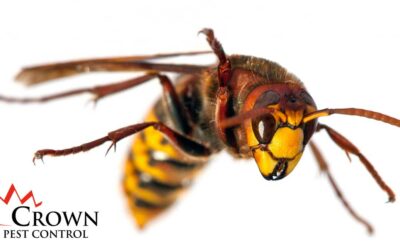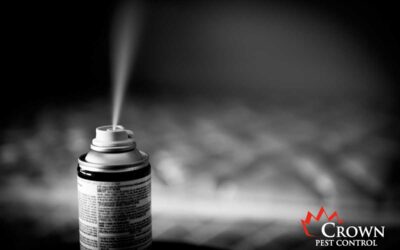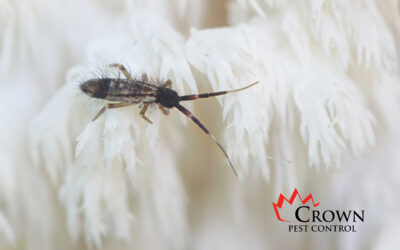
Rodents, a Concern for Homeowners
Homeowners in Charlotte should be aware of the dangers that rodents can pose to their property and health. There are many different types of rodents, and they can be very troublesome for homeowners.
They can damage property, contaminate food, and spread diseases. There are some things that homeowners can do to reduce the risk of rodent infestation. If you have an infestation, don’t wait, it is important to contact a professional right away.
Rats and mice are a problem for homeowners
There are many different types of rodents that can be a problem for homeowners. Rodents can damage property, contaminate food, and spread diseases. Some of the most common rodents that cause problems for homeowners include mice and rats.
Mice are one of the most common types of rodents that can be a problem in the home. In the Carolinas, we usually find two types of mice, the deer mouse, and the house mouse. They can taint food, damage property, and spread a variety of diseases. Mice are attracted to homes because they offer shelter and food sources.
Rats are another type of rodent that can be a problem in the home. They are larger than mice and can cause more damage to property. Rats are also attracted to homes for shelter and food sources. The two main types we see in Charlotte are the Black rat and the Norway rat.
To prevent rats or mice from entering your home it is important to seal any cracks or holes in the exterior of your home. You should also keep your home clean and free of clutter.
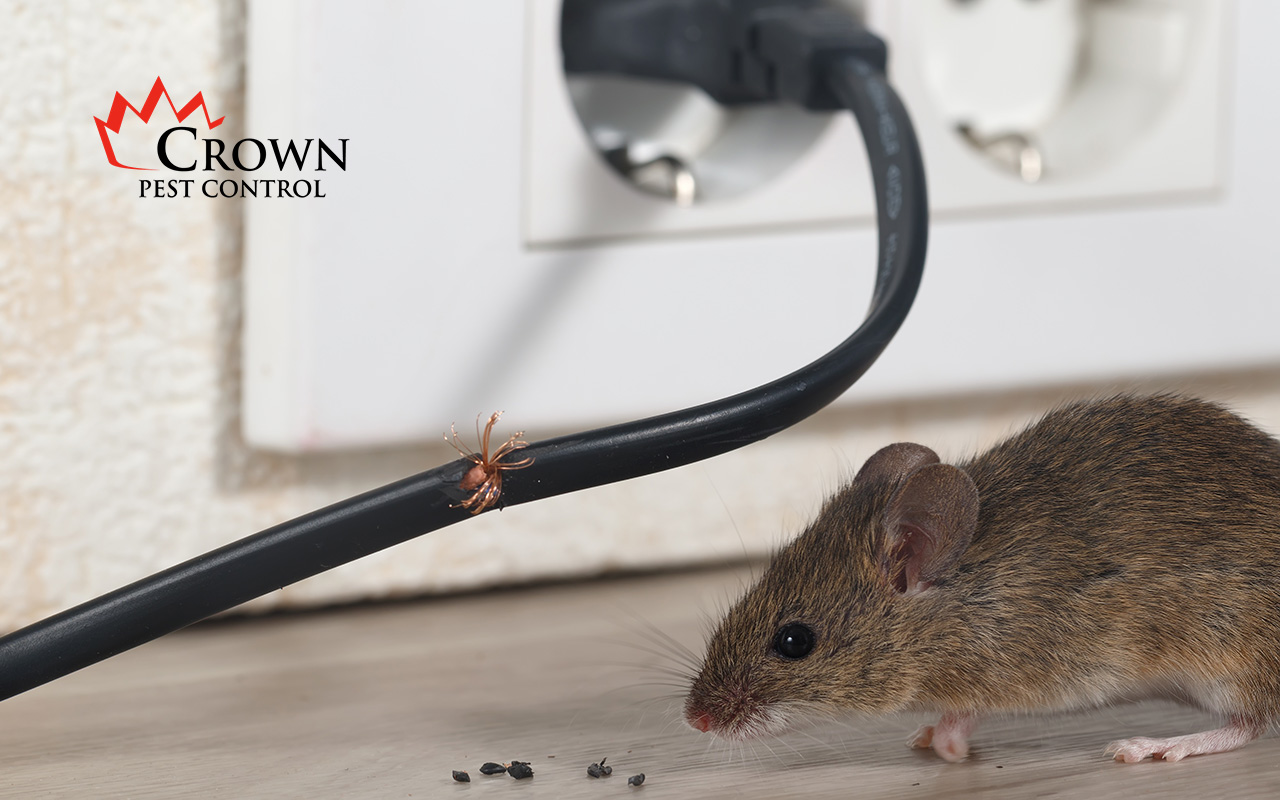
Damage that rodents can cause to property and health
Homeowners need to be aware of the dangers of these pests and take steps to reduce the risk of infestation.
The physical damage rodents can do is shocking. Their need to chew and their ability to do so wreaks havoc on structures. Nothing is safe. Mice gnaw on paper, cloth, books, and insulation. Mice will even chew on electrical wires, which can create a fire hazard. Rats are even worse than mice when it comes to chewing and damaging property.
Rats will chew through just about anything to get where they want to go. This includes wood, plastic, metal, stucco, and more. If a rat can fit its head through an opening, the rest of its body will follow. This means that rats can gain access to your home through incredibly small spaces. Once inside, rats will nest in attics, walls, crawlspace, and just about any other hidden area.
These animals also carry diseases. We will talk about only two, hantavirus and Lyme disease. If you want to learn about additional diseases they can carry, please check out the CDC.

Rodents carry hantaviruses that can be transmitted to humans through contact with infected rodents or their urine, droppings, or saliva. HPS was first identified in the southwestern United States in 1993 and has since been reported in several other states, including North Carolina.
Symptoms of HPS include fever, headache, muscle aches, and gastrointestinal problems such as nausea, vomiting, and diarrhea. These symptoms are followed by coughing and difficulty breathing. If you have these symptoms and have been in contact with rodents or their urine, droppings, or saliva, you should see a doctor immediately. HPS is a serious disease that can be fatal, it is important to take precautions to avoid exposure to hantaviruses.
Another risk is the possibility of contracting Lyme disease. This disease is caused by bacteria that is carried by certain types of ticks, and it can be transmitted to humans if they are bitten by an infected tick. Rodents can carry these ticks into your home, and if you encounter one of them, you could be at risk for Lyme disease. Symptoms of this disease include fever, chills, body aches, and a rash. If you think you may have been exposed to Lyme disease, it is important to see a doctor immediately.
If you have rodents in your home, they can cause serious damage and pose a threat to your health. It is important to take action to get rid of them as soon as possible.
Signs of rodents
There are several things that may indicate you have a rodent problem in your home. Some of the most common signs include:
- Gnaw marks: Rodents have sharp front teeth that they use for gnawing. If you see scratch marks or chew marks on wood, plastic, or even metal, it could be a sign of rodents.
- Droppings: Another telltale sign of rodents is their droppings. Mouse droppings are small and black, while rat droppings are larger and brown. If you see droppings in your home, it’s a good indication that rodents are present.
- Sounds: You might also be able to hear rodents if they’re present in your home. Scratching or scurrying sounds coming from walls or ceilings could be a sign that rodents are inside your home.
- Nests: Rodents will often build nests out of materials like paper, cloth, or insulation. If you find a nest in your home, it’s a good indication that rodents are present.
- Footprints: You might also be able to see footprints or tail marks if rodents are present. These can be helpful in identifying what type of rodent is in your home.
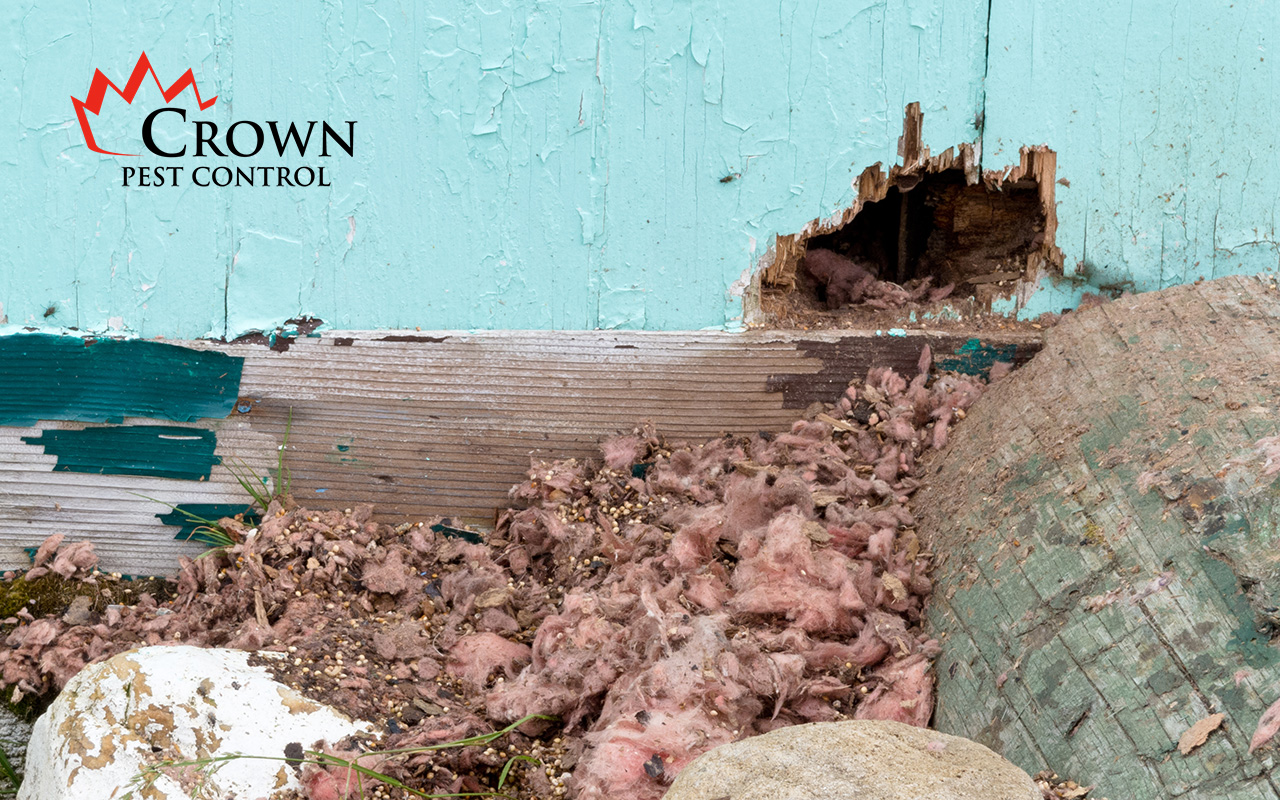
How to reduce the risk of rodent infestation
Rodents can cause a lot of damage to your home. If you live in the Charlotte area, it is important to take steps to prevent rodents from damaging your home. Below are some things that homeowners can do to reduce the risk of rodent infestation.
–Seal up any openings: One of the most important things you can do to prevent rodents from entering your home is to seal up any openings. This includes cracks in walls, gaps around doors and windows, and holes in the foundation.
–Remove food sources: Another way to prevent rodents from entering your home is to remove food sources that might attract them. This includes keeping food in sealed containers and cleaning up any crumbs or spills immediately. Do not leave pet food out overnight.
–Keep your home clean: A clean home is less likely to attract rodents. Be sure to sweep and mop regularly, and vacuum carpets and upholstered furniture to remove any potential food sources.
–Use rodent-proof containers: If you store food in your home, be sure to use rodent-proof containers. This will help to keep rodents from getting into your food and contaminating it.
By taking these steps, you can help prevent rodents from damaging your home. If you have any questions about preventing rodent damage, or if you need assistance removing rodents from your home, please contact us today. We would be happy to help!
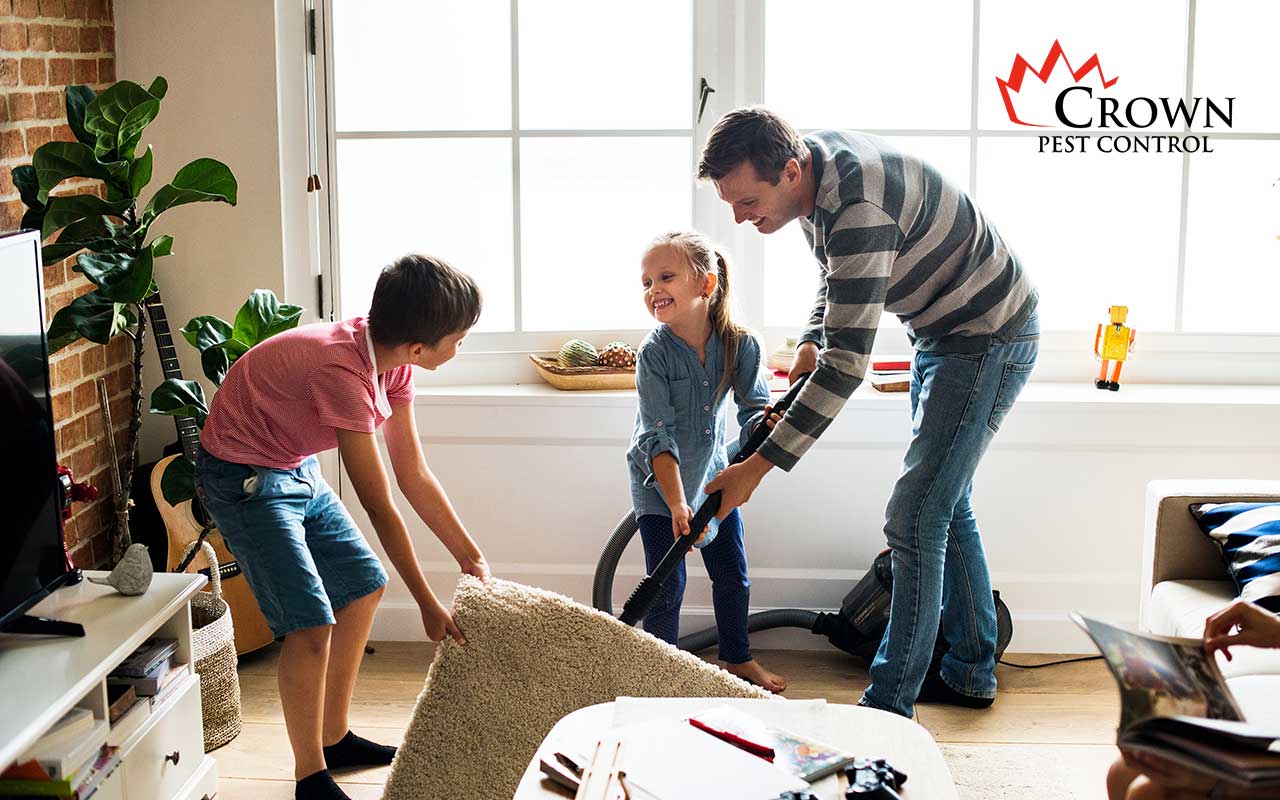
Tips and Tricks for Mice in Your Car
Tips and Tricks for Mice in Your Car Dealing with Mice in Your Car When Temperatures Drop Introduction Are you facing the problem of mice infestation in your car during cold temperatures? In this blog, we will explore the issue, discuss its significance, and provide a...
Invasion of Cockroaches in Cold Weather
Invasion of Cockroaches in Cold Weather Are you tired of dealing with cockroach invasions during Charlotte’s cold winter months? Don't worry; we've got you covered! In this blog, we will explore the increased presence of cockroaches in cold weather and provide...
Restaurant Pest Control In Matthews, NC
Restaurant Pest Control In Matthews, NC As a restaurant owner in Matthews, NC, you know that maintaining a clean and hygienic environment is crucial to your business's success. At Crown Pest Control, we understand this too and provide top-notch pest control services...
European Hornets
European Hornets in Charlotte NC: What You Need To Know If you're a homeowner in Charlotte, North Carolina, it's important to be aware of the dangers of European hornets. These pests can cause significant damage to your property and should be removed as soon as...
Beware of Bug Bombs
Are you having trouble getting rid of pests in your home? Are bug bombs your only solution? Well, think again.
Do Springtail Bugs Bite?
Springtails are harmless tiny creatures you may find jumping or scurrying around your home.




